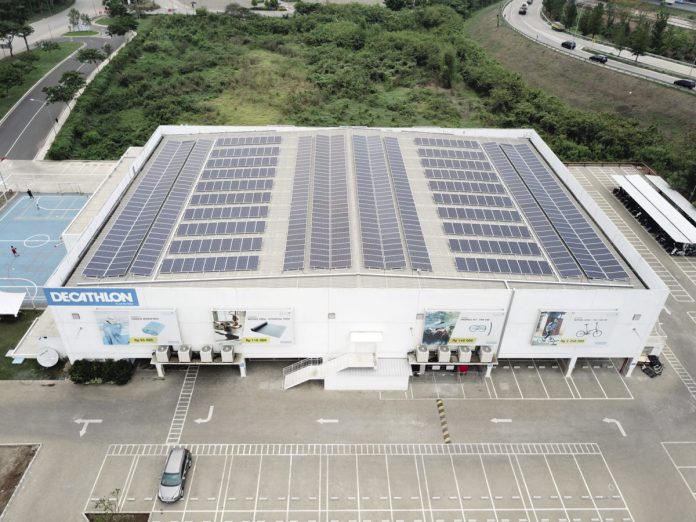In October 2019, Joko Widodo, the president of Indonesia, demonstrated that he was looking to develop renewable energy in the country by appointing Arifin Tasrif as the new leader of the Ministry of Energy and Mineral Resources (MEMR). At the time, during his second term, Widodo reminded coal industry participants to be aware that the transition to renewables was underway. The remarks were made at the Indonesian Mining Awards in November 2020: “To change [to green energy] I think … we need to be ready and prepared,” said Widodo.
Based on its National Energy Policy, announced in a 2017 Presidential Decree, Indonesia has targeted a mix of 23% renewable energy by 2025. Given these goals, the commercial and industrial solar segment (C&I) will undoubtedly play an important role.
Regulatory update
Andhika Prastawa, head of the Indonesian Solar Energy Association (Asosiasi Energy Surya Indonesia) says that 2018 legislative revisions to the MEMR Regulation have paved the way for progress.
“Last year, the challenges were the certification and capacity charge,” said Prastawa. “A simple certification process (starting at 200 kWp operation) and a capacity charge that was reduced from 40 hours to five hours help PV, in the industrial sector, to grow.”
Prastawa said that the MEMR is now proposing a feed-in tariff policy to the president to encourage more industries and the commercial sector to invest in solar. “Now we are still waiting for presidential acceptance for the FIT, which is planned to be implemented in the first half of this year”.
Beyond the pure financial payoffs, some companies with Indonesian operations have taken steps toward solar – Danone Aqua, Decathlon, and Tokopedia are a few examples. Danone Aqua, the biggest manufacturer of bottled water in Indonesia, installed a 3.6 MW solar system this year in collaboration with Total and Synergy Renewable Energy.
In November 2019, Decathlon Indonesia completed a 214 kW rooftop solar project in cooperation with LYS Energy, an independent power producer based in Singapore, and local Indonesian partner Alfa Service Solusi. In June 2019, Tokopedia, an Indonesian e-commerce company, unveiled a 13.5 kW car park array in collaboration with Xurya, a renewable energy startup, and EPC TML Energy. All three companies – LYS Energy, Xurya, and TML – shared their experience on developing projects in Indonesia.
Local challenges
For LYS, the challenge while working on its Indonesian project was to convince the market and businesses of the benefits of PV. “Consumers in Indonesia are always accustomed to a fixed electricity retailer; hence they are unconscious about alternative and renewable energy that is available to their operations,” said Wilson Zhang, the CTO of LYS Energy. He added that awareness about the solar resource in Indonesia and reliability has also affected perceptions of PV asset performance.
Zhang noted that the regulatory landscape in Indonesia is becoming more supportive of solar. However, due to annual iterations of regulations, the dissemination of information to stakeholders takes time, and the administrative process can be confusing.
Nany Wardhani, the CEO of Indonesian EPC provider TML, agreed that there have been many changes in recent years related to PV regulations. At the end of 2014, Wardhani explained there was a so-called “selling price” regulation where the solar electricity generators’ rate per kWh had to be 85% of the cost of local electricity procurement or BPP (Biaya Pokok Penyediaan). If under BPP from local coal plants, it was difficult for PV electricity to compete on price. This was changed to net metering, administrated by Perusahaan Listrik Negara (PLN), but is now further penalized through a 40-hour capacity charge and certification. The capacity charge refers to the cost that a company needs to pay for having a “parallell operation” with PLN, meaning the right to both consume power from the grid, but also feed it back from a rooftop PV system.
“Until the middle of 2019, the regulations seemed to be stagnant, and there was MEMR Regulation, which did not seem to have led to the development of renewable energy, but at the end of 2019, there was new hope. The policy that was inhibiting was improved on,” stated Wardhani. The capacity charge was lowered down to five hours, allowing developers to avoid complicated certification processes with third parties.
Possible solutions
To overcome the challenge of convincing customers to invest more in solar, LYS spent time with them to educate them on the topic and to clarify any misconceptions during the feasibility stage of the project. “The Decathlon team had very clear goals to utilize renewable energy as part of their energy mix, and we were able to transfer the understanding to the team and illustrate regarding our existing plants on how the solar PV system works. LYS was able to demonstrate an outstanding track record of our system’s performance and convince them that their concerns will be addressed,” explained Zhang.
Convincing customers in Indonesia could be another challenge – not only for LYS but also for Xurya, a renewable-energy project developer. “By the end of 2018, solar panels were still new to us. Convincing customers was really difficult, thankfully some of them were thinking forward. We collaborate with malls like Plaza Indonesia, Ciputra, and logistics company DHL. We offer them corporate PPAs. Our concept is that the client doesn’t need to invest. We come out with all the costs, and later we share the saving cost of electricity.”






